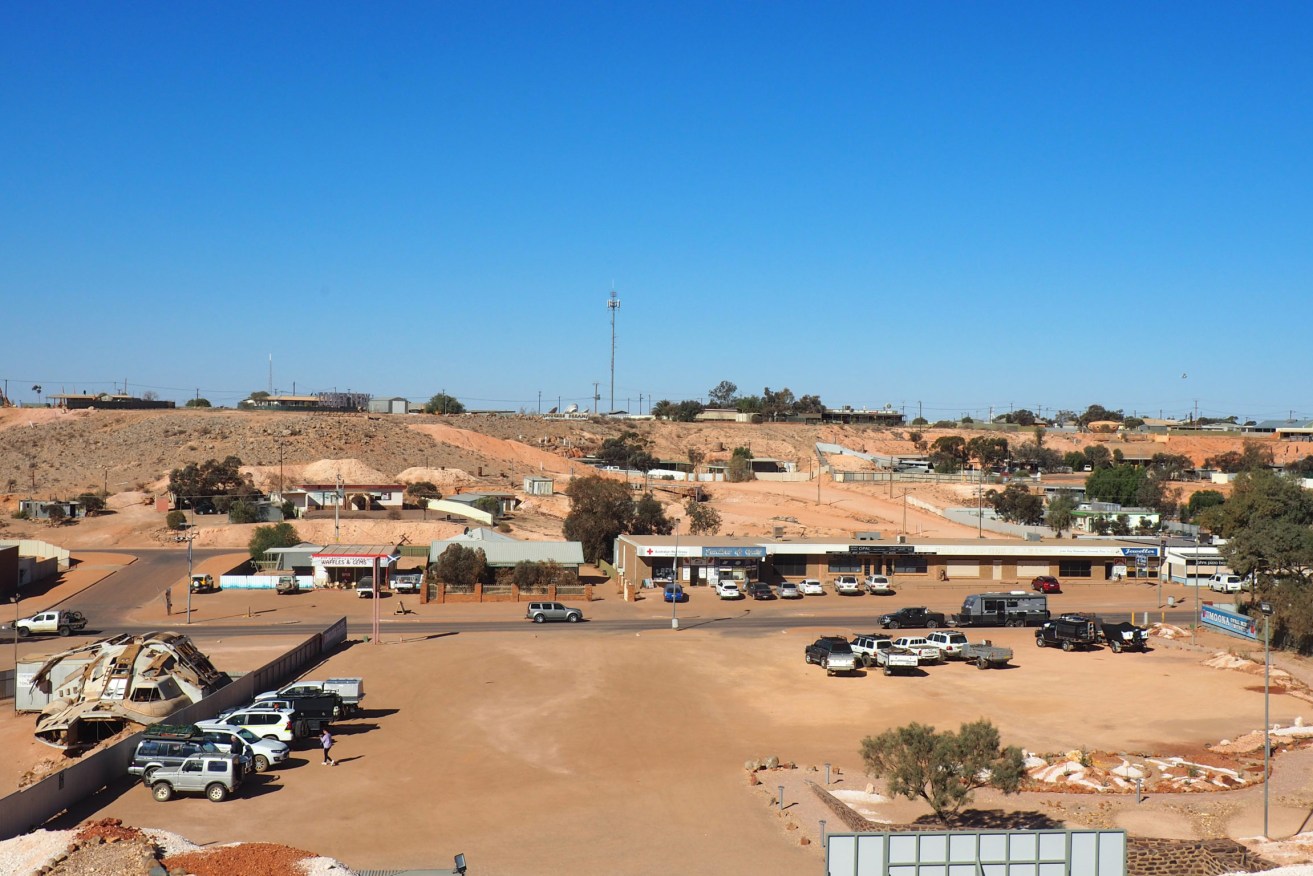‘Catastrophic’: Ombudsman slams Coober Pedy Council’s debt handling
UPDATED: Coober Pedy Council wrongfully disconnected Aboriginal residents’ power and allowed them to accumulate thousands of dollars’ worth of debts over several years in a “manner that appears contrary to law”, the South Australian Ombudsman has found.

Coober Pedy. Photo: Stephanie Richards/InDaily
Ombudsman Wayne Lines has criticised the District Council of Coober Pedy for making “unreasonable, unjust and wrong” administrative errors that “have had a drastic and significant impact on the Aboriginal community in Coober Pedy”.
In a redacted report released publicly this morning, Lines wrote that the council, which is currently under administration, failed to comply with several conditions outlined in its Electricity Retail and Distribution Licence and Water Industry Retail Licence.
He found the council disconnected the electricity of numerous Aboriginal residents, many of whom are Antakirinja Matu-Yankunytjatjara Native Title holders, without first offering them an instalment plan, and before they had two payment arrangements cancelled in the previous 12 months.
Community members reported accumulating debts of up to $12,000 and being left without electricity on days that reached over 40-degrees Celsius.
The council was also found to have disconnected a community member’s electricity supply on a Friday, leaving them without power over the weekend.
Lines wrote that alongside wrongfully disconnecting residents’ power, the council failed to comply with the water hardship policy and omitted information from water bills.
He wrote that the council failed to identify community members who were eligible for hardship provisions, while requiring “significant payments” from those who were on hardship agreements and including extended family members in the agreements.
The Ombudsman also investigated reports that some community members were asked by the council to tap into Native Title funding to pay back debts, although he wrote that he was “unable to decisively conclude” whether that was the case.
“At the core of this investigation is the very serious concern that Aboriginal community members of Coober Pedy have been allowed to accumulate considerable debts in relation to their electricity and/or water accounts,” Lines wrote.
“This in turn has had a significant impact on their quality of life.
“These debts appear to have accumulated over several years until the council determined that action needed to be taken to recover the amounts owed and any ongoing usage of customers.”
Lines launched his three-year investigation following a referral by the Aboriginal Legal Rights Movement, which told him that the “vast majority” of community members who had accumulated debts were Centrelink clients, “many of whom live in what can be described as circumstances of poverty”.
The community members appear extremely reluctant to engage with the council based on many years of limited transparency and clarity about the state of their debts, with catastrophic financial implications
The Aboriginal Legal Rights Movement alleged that community members could not understand the information contained in their bills, the extent of their debt or the effects of any payments they had made towards the amount that was due.
Lines wrote that after speaking to the Aboriginal Legal Rights Movement, community members, the council and the Essential Services Commission of South Australia, he had “formed a final view that the council was acting in a manner that was contrary to conditions within the council’s licences and, therefore, contrary to law”.
However, he noted that the council, which was placed into involuntary administration by the State Government in 2019, had “inherited a legacy of previous practices that mishandled debts, failed to properly identify financial hardship circumstances, and failed to engage community members with payment arrangements that were realistic or focussed on the individual’s financial circumstances”.
“It is also apparent to me that there is a substantial breakdown in trust between the council and community members. I find this very concerning,” Lines wrote.
“The community members appear extremely reluctant to engage with the council based on many years of limited transparency and clarity about the state of their debts, with catastrophic financial implications.
“The council is now also placed in a difficult position of managing the fallout from a council placed into involuntary administration.”
Lines made six recommendations, including that the council review its hardship agreements and customer records and that staff undertake cultural awareness training.
He recommended that the council create an “Aboriginal Engagement Plan” that outlines how it will “build a respectful dialogue with Coober Pedy’s Aboriginal community, and how the council will ensure that it has appropriate channels of communication for issues affecting the Aboriginal community to be openly discussed with the council”.
The State Government has also been asked to review whether there are alternative options for the supply of water and electricity in Coober Pedy that would place “less of an administrative and financial burden on the council”.
“My proposed recommendations won’t provide a quick fix to this situation,” Lines wrote in his report.
Local Government Minister Vickie Chapman said the Government had been working with the Council to address the “many financial and operational challenges it’s facing”.
“This includes the Council’s management of its energy and water systems, to ensure the best outcome for ratepayers and residents,” she said.
Coober Pedy Council apologises for past billing practices
In a joint statement issued to the media on Wednesday, Coober Pedy District Council administrator Tim Jackson and CEO Dean Miller acknowledged and apologised for the “the harm and mistrust” caused by the council’s past billing practices.
The pair said the council would implement all of Lines’ recommendations and “welcomes all community input as to how we can move forward together”.
“Council has undertaken a major review of its debt management policies and written off a significant amount of electricity debt in the 2020-21 financial year,” they said.
“However, there is still much more to do, including cultural awareness training for all employees, the provision of more information to customers particularly in relation to hardship, and the creation of an Aboriginal Engagement Plan.
“Council will continue to inform the community as we address these issues.”




